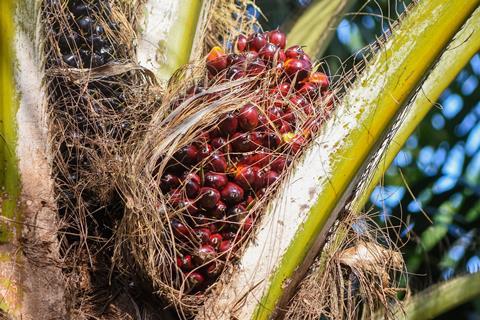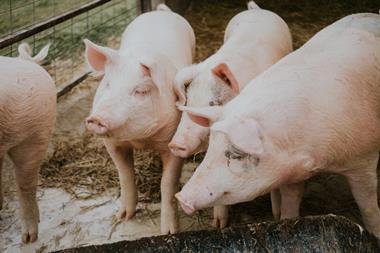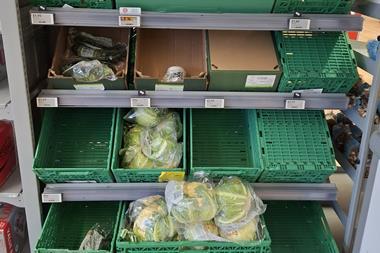
Tesco used more than 59,000 tonnes of palm oil in its own label products across its global operations last year, latest figures show.
The volume is up 50% on its 2017 reported figure of 38,500 tonnes, according to stats published by the Roundtable on Sustainable Palm Oil.
The supermarket said it had only recently concluded a review of the palm oil used in its products globally. So while the 2017 figure reflected UK volumes and some international business, the 2018 figure showed the palm oil footprint of the entire Tesco group - including its international businesses and Booker, which it acquired last year.
Three-quarters of the palm oil in Tesco own brand products is now responsibly certified by the RSPO, leaving about 14,000 tonnes grown by potentially unsustainable suppliers, the figures suggest. Tesco said it aimed to use 100% certified sustainable palm oil across the group by 2020.
Sainsbury’s also reported higher volumes of palm oil in its own-brand products last year. It used 14,900 tonnes in 2018, RSPO figures show, compared with 11,400 tonnes in 2017. The supermarket attributed the growth to its acquisition of Argos in April 2016.
In contrast, Morrisons cut the use of palm oil in its products by more than half. It declined to comment. The release of the new figures comes as Greenpeace this week claimed even sustainably branded palm oil was a misleading concept, after finding evidence RSPO members were linked to a series of Indonesian forest fires this year.
Greenpeace UK head of forests Richard George said the amount of palm oil used by UK supermarkets was “unacceptable”.
“To save Indonesia’s rainforests, companies like Tesco need to use less palm oil and make sure every drop comes from responsible growers that are protecting forests,” he said.
Richard Walker, MD of Iceland Foods - which has pledged to remove palm oil entirely from its own label products - said better transparency and auditing meant supermarkets were “beginning to understand their consumption better”.
It was “down to each retailer to make their own ethical decision” on palm oil, he added, though he stressed grocery still needed to reduce its reliance on it. “A little bit of sustainable palm oil in a few products would be fine. But it’s become the vegetable oil of default because it’s cheap and high-yielding. As a result the pendulum has swung and we’ve gone all-in to palm oil, whereas we need to be a bit more diverse and balanced.”
RSPO rejected Greenpeace’s claims, arguing the NGO had “misunderstood the methods and tools” it used to monitor members’ production methods.



















No comments yet